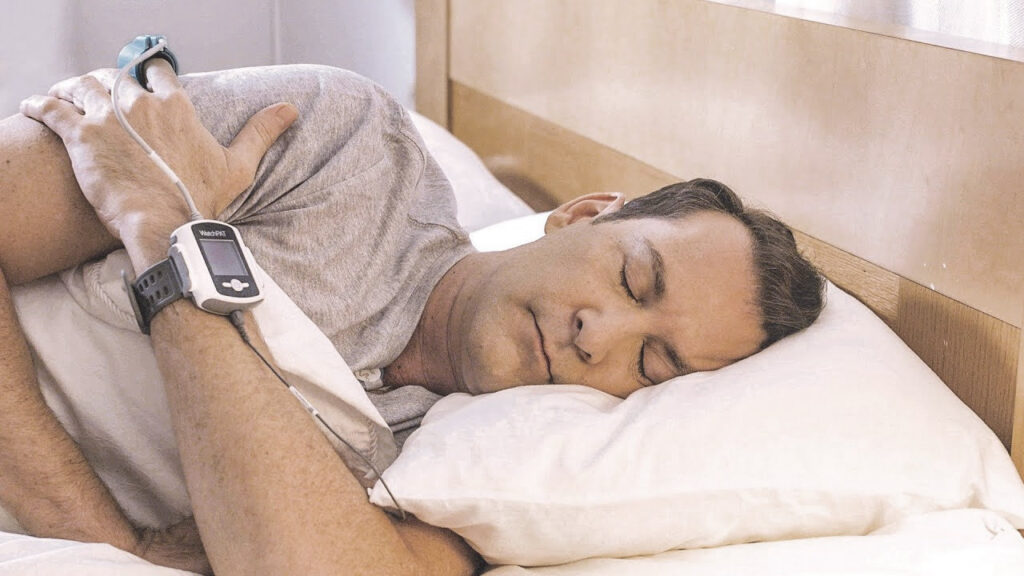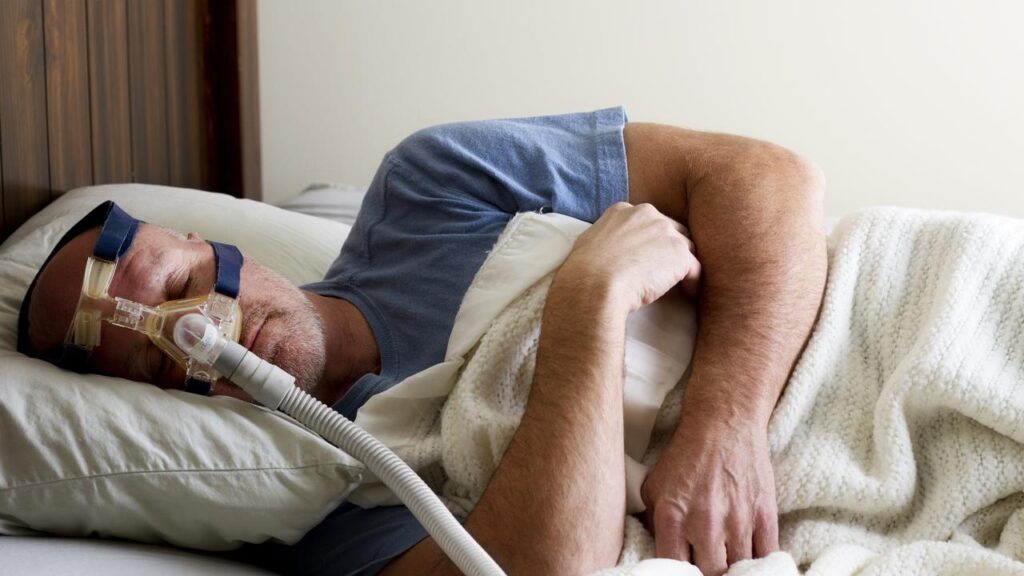Sleep apnea is a common sleep disorder that affects many Australians. It is characterized by pauses in breathing during sleep, which can lead to various health issues if left untreated. Diagnosing sleep apnea is crucial for managing the condition and improving overall health. In recent years, home test kits for sleep apnea have become increasingly popular, offering a convenient and affordable alternative to traditional clinical sleep studies. In this article, we will delve into the world of sleep apnea home test kits, exploring their benefits, types, and accuracy, to provide Australians with a comprehensive overview of this innovative approach to diagnosis.
Understanding Sleep Apnea
Sleep apnea is a sleep disorder that affects the quality and quantity of sleep. It occurs when the upper airway becomes partially or completely blocked, leading to repeated pauses in breathing that can last from a few seconds to a minute. These pauses are followed by a sudden release of air, often accompanied by loud snoring or choking sounds. Sleep apnea can disrupt sleep patterns and leave individuals feeling tired and fatigued during the day.
Sleep apnea home test kit Australia are portable devices that allow individuals to monitor their sleep patterns and collect data on potential breathing disturbances during the night. These devices are easy to use and typically come with instructions that guide users through the testing process.
There are three main types of sleep apnea:
- Obstructive sleep apnea (OSA): This is the most common type, occurring when the muscles in the back of the throat fail to keep the airway open.
- Central sleep apnea (CSA): This type is caused by a failure of the brain to send proper signals to the muscles that control breathing.
- Mixed sleep apnea: As the name suggests, this type is a combination of obstructive and central sleep apnea.
Now that we have a better understanding of sleep apnea, let’s explore the importance of diagnosing this condition.
Diagnosing sleep apnea is crucial for several reasons. Untreated sleep apnea can lead to serious health complications, including high blood pressure, heart disease, stroke, diabetes, and depression. It can also increase the risk of accidents due to daytime drowsiness and impaired cognitive function. Therefore, early detection and treatment of sleep apnea are essential for improving overall health and quality of life.
Individuals who suspect they may have sleep apnea should undergo a sleep study, also known as polysomnography, to monitor their sleep patterns and breathing during the night. This test helps healthcare providers determine the severity of the condition and recommend appropriate treatment options. Treatment for sleep apnea may include lifestyle changes, such as weight loss and positional therapy, the use of continuous positive airway pressure (CPAP) devices, oral appliances, or in severe cases, surgery to correct airway obstructions.

The Importance of Diagnosing Sleep Apnea
Undiagnosed sleep apnea can have significant implications on an individual’s health and well-being. It has been linked to a range of health risks, including:
- Increased risk of cardiovascular diseases, such as high blood pressure, heart attacks, and strokes.
- Impaired cognitive function and decreased productivity.
- Higher likelihood of accidents and injuries due to daytime sleepiness.
- Worsening of existing medical conditions, such as diabetes and asthma.
Given the potential consequences, it is crucial to identify and diagnose sleep apnea as early as possible. This is where home test kits for sleep apnea come into play, offering a convenient and accessible option for individuals to assess their sleep health in the comfort of their own homes.
Sleep apnea is a common but serious sleep disorder that affects millions of people worldwide. It is characterized by pauses in breathing or shallow breaths during sleep, leading to disrupted sleep patterns and decreased oxygen levels in the body. These disruptions can have a profound impact on overall health and quality of life if left untreated.
Individuals with untreated sleep apnea may experience chronic fatigue, irritability, and difficulty concentrating during the day. Over time, the cumulative effects of poor sleep can contribute to the development of more severe health issues, such as obesity, depression, and even an increased risk of sudden cardiac death. By recognizing the signs and symptoms of sleep apnea early on and seeking proper diagnosis and treatment, individuals can significantly improve their quality of life and reduce the associated health risks.
Introduction to Home Test Kits for Sleep Apnea
So, how do these home test kits actually work?
How Do Home Test Kits Work?
Home test kits for sleep apnea usually consist of a small device worn on the body, typically around the chest or finger, which records different parameters during sleep. These parameters may include:
- Respiratory effort: Detecting and measuring the effort exerted during breathing.
- Heart rate: Monitoring the heart’s activity during sleep.
- Oxygen saturation: Measuring the level of oxygen in the blood. Read more about Oxygen on https://scied.ucar.edu/learning-zone/air-quality/oxygen
- Snoring intensity: Assessing the intensity of snoring sounds produced during sleep.
By collecting this data overnight, home test kits can provide valuable insights into a person’s sleep quality and identify potential signs of sleep apnea. The collected information can then be analyzed by healthcare professionals to make an accurate diagnosis and recommend appropriate treatment options.
Benefits of Using Home Test Kits
There are several benefits associated with using home test kits for sleep apnea:
- Convenience: Home test kits eliminate the need for overnight stays in sleep clinics, allowing individuals to monitor their sleep patterns in the comfort of their own beds.
- Cost-effectiveness: Home test kits are generally more affordable compared to clinical sleep studies, making them a more accessible option for many Australians.
- Privacy: For those who prefer to maintain their privacy, home test kits offer a discreet way to assess sleep health without the need for face-to-face consultations.
Furthermore, home test kits provide individuals with the flexibility to conduct multiple tests over a period of time, allowing for a more comprehensive understanding of their sleep patterns. This can be particularly useful for individuals who experience occasional sleep disturbances or suspect that their sleep apnea symptoms vary from night to night.
Another advantage of home test kits is that they can be used by individuals of all ages, including children and the elderly. This makes them a versatile tool for assessing sleep health within different populations.
Now that we understand the basics of home test kits, let’s explore the different types available in the market.
Types of Sleep Apnea Home Test Kits
There are two main types of sleep apnea home test kits: single-channel monitors and multi-channel monitors.
When it comes to monitoring sleep apnea at home, single-channel monitors and multi-channel monitors offer distinct advantages and considerations. Single-channel monitors, as the name implies, focus on collecting data related to a specific parameter, such as respiratory effort or oxygen saturation. These devices are often more affordable and user-friendly, making them a popular choice for individuals looking to assess their sleep quality in the comfort of their own homes. However, it’s important to note that the limited scope of single-channel monitors may not provide a comprehensive assessment of sleep apnea, potentially missing important nuances in diagnosis.
Single-Channel Monitors
Single-channel monitors focus on collecting data related to a specific parameter, such as respiratory effort or oxygen saturation. They are typically less expensive and easier to use compared to multi-channel monitors. However, their limited scope may not provide a comprehensive assessment of sleep apnea.
On the other hand, multi-channel monitors take a more holistic approach by collecting data from multiple parameters simultaneously. By capturing a broader range of information, these devices offer a more detailed and accurate evaluation of sleep apnea and its severity. This comprehensive analysis can provide valuable insights for healthcare providers in tailoring treatment plans to individual needs. However, the complexity of multi-channel monitors may require additional guidance from healthcare professionals for proper setup and interpretation of results. To find more about analysis click here.
Multi-Channel Monitors
Multi-channel monitors, as the name suggests, collect data from multiple parameters simultaneously. This comprehensive approach allows for a more accurate evaluation of sleep apnea and its severity. However, multi-channel monitors tend to be more complex to use and may require assistance from healthcare professionals.
Evaluating the Accuracy of Home Test Kits
While home test kits for sleep apnea offer convenience and accessibility, it’s essential to evaluate their accuracy compared to clinical sleep studies.

Comparing Home Test Kits to Clinical Sleep Studies
Clinical sleep studies, also known as polysomnography, are considered the gold standard for diagnosing sleep apnea. They involve overnight stays in sleep clinics, where various parameters are monitored, including brain activity (EEG), eye movements, muscle activity, heart rate, and breathing patterns. However, clinical sleep studies can be expensive and may not be suitable for everyone.
Home test kits, on the other hand, provide a more affordable and convenient alternative, but their accuracy may vary. Factors that may affect their accuracy include:
Factors Affecting Accuracy of Home Test Kits
1. User compliance: Proper usage of home test kits is crucial for accurate results. Individuals must follow the instructions carefully and wear the device throughout the night to ensure reliable data collection.
2. Sleep position: Some home test kits may have limitations in accurately detecting sleep apnea if the person sleeps in a specific position, such as on their stomachs.
3. Sleep environment: Noise and other environmental factors can impact the accuracy of home test kits. It is advisable to create a sleep-friendly environment to minimize potential disturbances.
4. Severity of sleep apnea: Home test kits may have varying degrees of accuracy when it comes to mild, moderate, or severe sleep apnea. Consultation with a healthcare professional is recommended for proper evaluation and interpretation of results.
Furthermore, it’s important to consider the potential limitations of home test kits. While they can provide valuable insights into sleep apnea, they may not capture all the nuances and complexities of a clinical sleep study. Clinical sleep studies involve the expertise of trained professionals who can analyze the data comprehensively and provide a detailed assessment of sleep patterns and breathing abnormalities.
Additionally, home test kits may not be suitable for individuals with certain medical conditions or those who require a more in-depth evaluation. For example, individuals with underlying respiratory or cardiovascular disorders may benefit from the comprehensive monitoring offered by clinical sleep studies.
It’s worth noting that the accuracy of home test kits can also be influenced by the specific brand or model being used. Different manufacturers may employ varying technologies and algorithms, leading to differences in accuracy rates. Therefore, it’s essential to research and choose a reputable and validated home test kit to ensure reliable results.
In conclusion, while home test kits offer a convenient and cost-effective option for evaluating sleep apnea, their accuracy should be carefully evaluated. Factors such as user compliance, sleep position, sleep environment, and the severity of sleep apnea can impact the reliability of results. It’s crucial to consult with a healthcare professional for proper interpretation and to consider the potential limitations of home test kits compared to clinical sleep studies.
In Conclusion
Home test kits for sleep apnea offer a convenient and accessible option for Australians to assess their sleep health. They provide valuable insights into sleep patterns and potential signs of sleep apnea, allowing for early diagnosis and intervention. While these home test kits are not a replacement for clinical sleep studies, they offer a cost-effective and private alternative for those who may not have access to or prefer not to undergo traditional polysomnography. Consultation with healthcare professionals is essential for accurate diagnosis and appropriate treatment recommendations. By utilizing the advantages of home test kits, Australians can take proactive steps towards better sleep and improved overall health.

